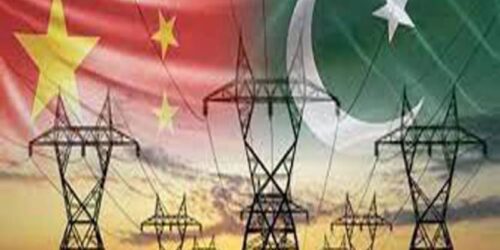The China Pakistan Economic Corridor (CPEC) is gaining momentum with every passing day of Pak-China relationship, because of which the project would continue with more strength in days ahead.
With the smooth sailing of CPEC project, Pakistan is foreseeing massive economic activity during days ahead. An appreciable outcome of a novel Belt and Road Initiative (BRI) of the Chinese government, Pakistan becomes the key player in the regional economic activity.
Commenting with respect to the 70th celebrations of Pakistan-China diplomatic relations, an official in CPEC Authority requesting not to be named, exclusively told APP that the mega project would further strengthen the bilateral relations with China.
Their strategic relationship, which was being strengthened with every passing day, was of great importance both on regional as well as international fronts, the official said.
This project would not only earn billions of dollars revenue through trade but also generate thousands of jobs for the local people besides infrastructure development, power generation and projects in transportation, railways, agriculture, science and technology and tourism sectors.
One key outcome of the CPEC is the construction of Special Economic Zones under construction across the country through Pak-China joint venture. Keeping in view the importance of the project, number of other countries had also been showing interest off and on, to invest in the project.
The economic activity in the country is gaining momentum after the commencement of second phase of China Pakistan Economic Corridor (CPEC) that largely consists of industrial cooperation.
Although the Special Economic Zones (SEZs) planned under the umbrella of China Pakistan Economic Corridor (CPEC) are basically meant to relocate Chinese industry and investment but both the countries have already offered third party participation in the mega project.
He said in the next phase, four important sectors, including industry, agriculture, socio-economic development and Gwadar New City would progress at fast pace.
The official said nine out of 22 energy projects had been completed, while five mega electricity projects in Thar, Kohala, Azad Pattan and others were in the pipeline. After completion of all the projects, Pakistan would not only become self-sufficient in the energy with addition of 17,000 MW electricity to the national grid, but would also be able to export it.
Chinese Ambassador to Pakistan Nong Rong, in a recent statement, had also expressed satisfaction over the progress of CPEC projects, the official said.
He said at present, work on four Special Economic Zones (SEZs) was underway. Some 2,000 local and foreign investors had expressed intent to invest in the Rashakai SEZ.
The Rashakai Zone, the official said, would spread over 1,000 acres of land. The Federal Government had decided to develop it into three phases. About 247 acres of land would be developed in the first phase, 355 acres in the second phase and 399 acres in the last phase.
Similarly, 210 MW electricity would be provided to the zone in three phases whereas the government had also allocated Rs 1.203 billion for provision of gas, the official said.
He said over 400 industrial units, including garments and textile, domestic goods, electronics, electricity accessories, pharmaceuticals and others would be set up in the zone.
Similarly, the official said the Allama Iqbal Zone Faisalabad was being completed on priority, which would create around 250,000 jobs for the locals.
He said the Gwadar Port had now become operational. The Eastbay Expressway, linking Gwadar to Makran Coastal Highway, had been completed.
The official said under the CPEC, some 1,100 kilometer roads had been completed while 850 kilometres were under construction.
On the Western route, he said Hakla-Dera Ismail Khan Motorway was in the final stages. Its total length was 285 kms, which had been divided in five packages. The first 55 kms package would be completed on priority, which started from Yarik near D I Khan and ended at Rehmani Khel, he added.





